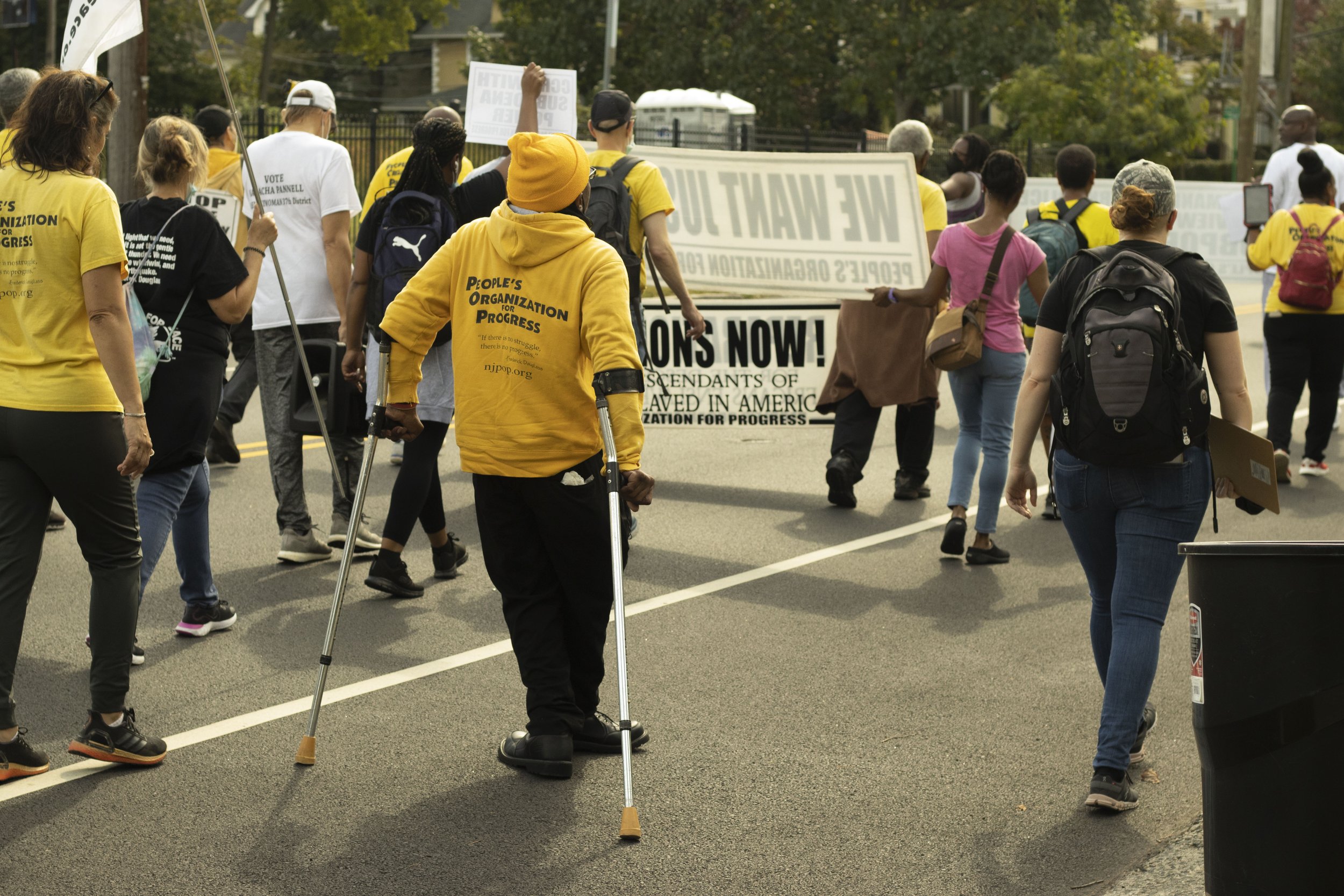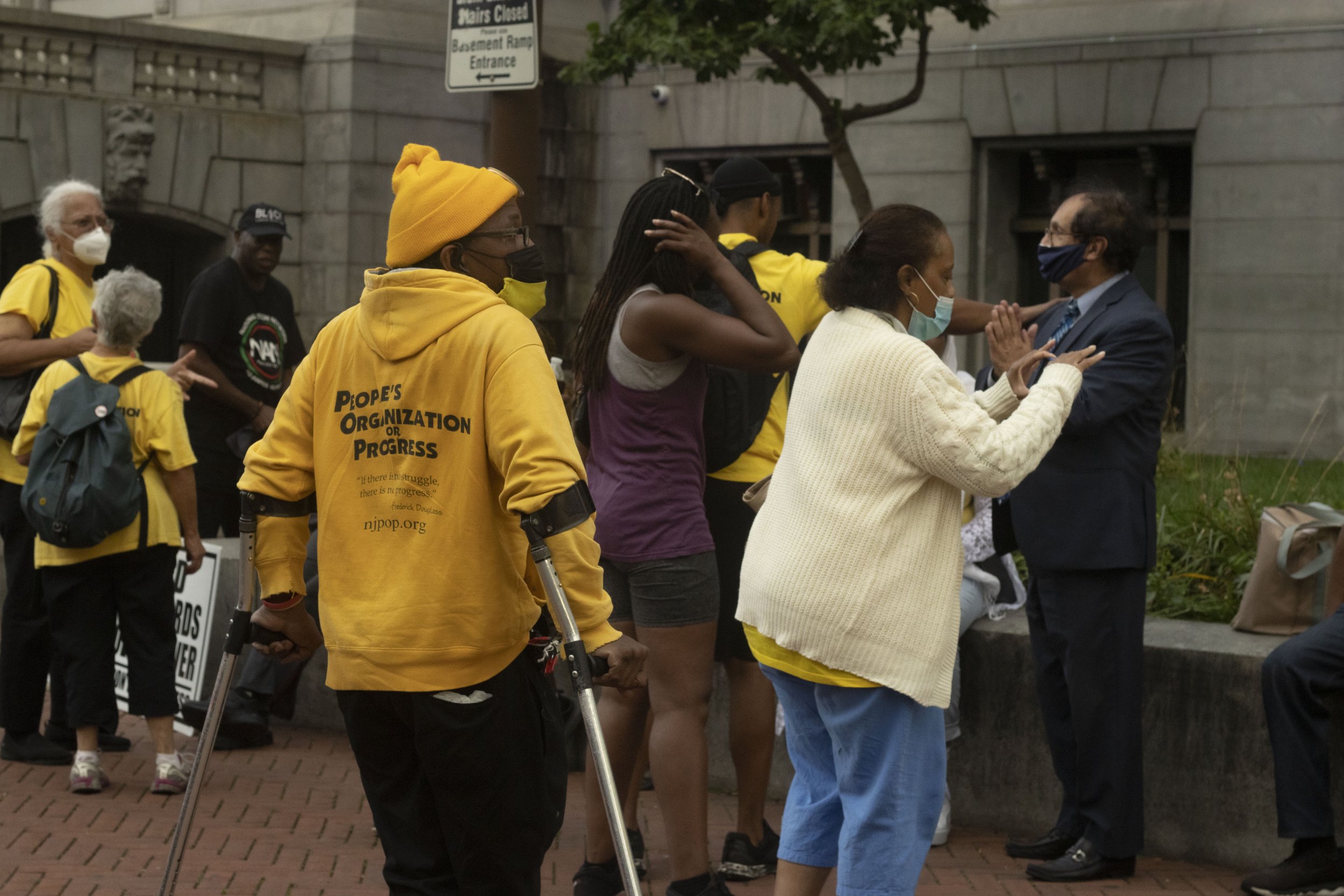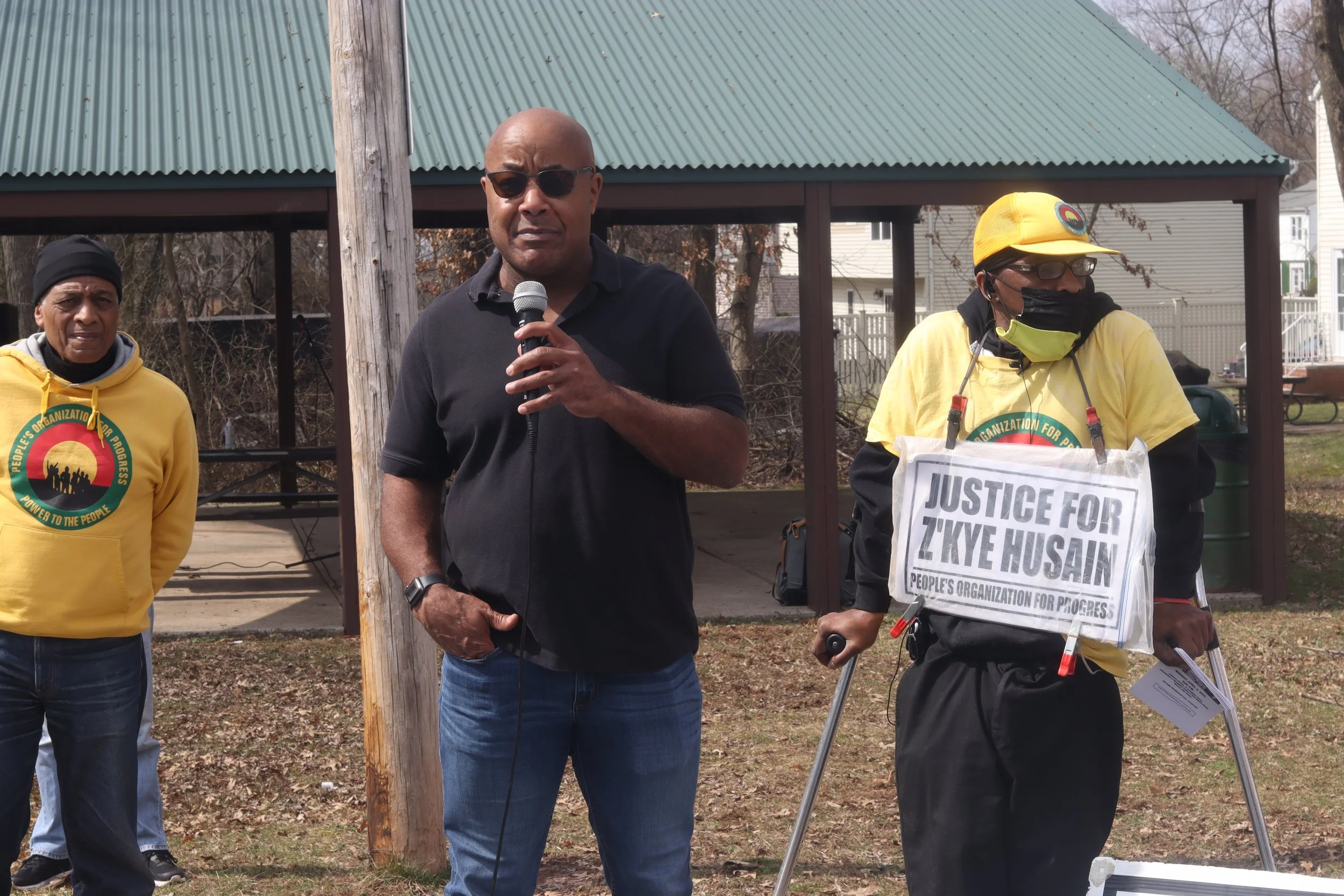"I do it because it needs to be done."—Why Tyrone Lockett marches
When Tyrone Lockett heard the story of Eleanor Bumpurs, he laced his shoes and took to the streets in protest.
Bumpurs, a 66-year old public housing tenant in The Bronx, faced eviction from her apartment for withholding rent. She refused to pay and maintained that the New York City Housing Authority failed to complete her repair requests. But on Oct. 29, 1984, after she screamed from inside her apartment at city marshalls trying to serve her an eviction notice, NYCHA responded by calling on the police to remove Bumpers from her home. And when officers did arrive, breaking into the apartment, they shot and killed Bumpers, who was said to have resisted while holding a knife. Her death touched off protests, especially in the Black community, and resulted in police reforms and the family's $200,000 settlement with New York City. But ultimately, Bumpurs, a Black woman who was mentally ill, was shot down for her resistance that day, which goes back to her initial protest: holding back some $ 400's worth in rent.
Lockett has marched against such tragic examples of injustice. A member of the People's Organization for Progress(P.O.P) for 11 years, Lockett is differently-abled and uses crutches for support. He knows some disabled persons can't make it to the streets and wants to motivate them to get involved somehow. He encourages them to join an organization, even if it's "just to make the phone calls or hand out leaflets," he says. And he wants to "keep people aware that we should all be involved on whatever level we can," he said.
Others have told him he inspires them to eliminate their excuses. But Lockett doesn't see his activism in that light. "I do it because it needs to be done," he said. "I have a little bit more difficulty in doing it, that's true, but I don't necessarily see it as all that inspiring."
His parents always encouraged him not to let his disability stop him. It's important to him to continuously show up because he says he needs to leave this world better than he found it. Before joining P.O.P, he would travel to New York on the PATH train to join marches with other organizations, including the National Action Network. These days he makes it his duty to show up to every P.O.P. rally.
It's not always easy for him as he's had a lot more issues with his disability than meets the eye. Lockett also says he's experienced hostility at different rallies, and he recalls someone throwing water at him in one instance. But, he'll continue to march, hoping with each demonstration that things go well and everyone makes it back home safely.
Lockett enjoys meeting like-minded people long committed to fighting injustice but also loves seeing new faces and younger people join in the rallies. Just as his ancestors marched for equality, he believes the younger generation will be marching long after he's gone. He thinks they need to learn how to continue the fight, as he learned from his parents.
Ahead of the Apr. 4 'Million's People's March for Voting Rights, Equality, and Democracy.' he hopes people will be motivated to come out and "hold the politicians' feet to the fire."



